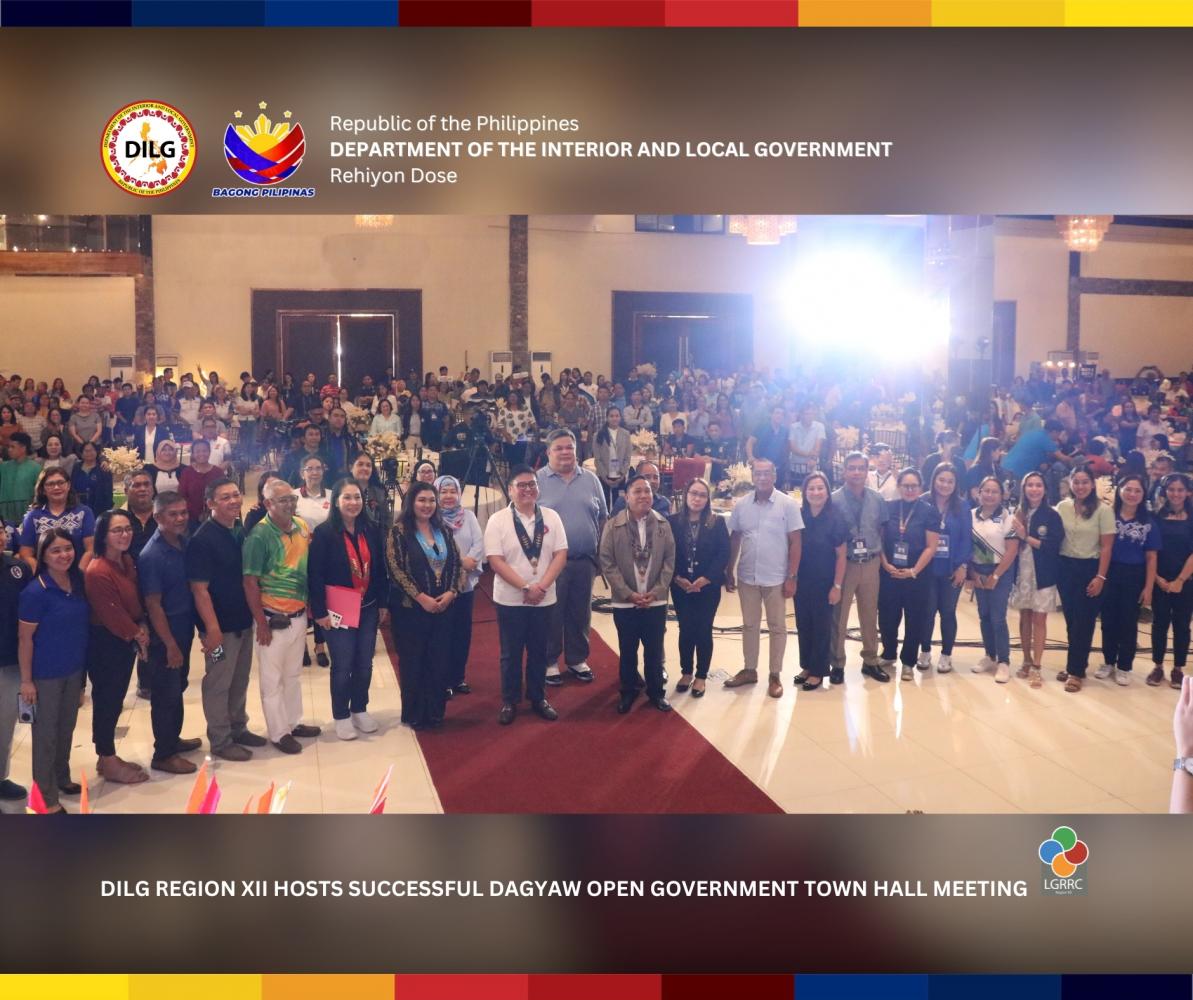
The 2024 Dagyaw Town Hall Meetings, spearheaded under the Support for Local Governance Program (SLGP) managed by Rehiyon Dose, have once again solidified their role as a cornerstone of participatory governance. These nationwide sessions, led by the Department of the Interior and Local Government (DILG) and the Department of Budget and Management (DBM), brought together Civil Society Organizations (CSOs), Local Government Units (LGUs), and oversight agencies to promote collaborative governance and citizen engagement.
The sessions revealed pressing issues and opportunities in strengthening participatory governance. Key areas of focus included the empowerment of CSOs, capacity building, fostering transparency, aligning governance frameworks, and promoting fiscal responsibility.
Civil society organizations (CSOs) play a critical role in governance, particularly in participatory budgeting and development planning under RA 7160. However, financial constraints, tokenistic inclusion, and weak upport structures hinder their meaningful contribution. To address these challenges, proposals include formalizing CSO accreditation, strengthening CSO Desk Officers' roles, and providing financial support to enhance participation. Capacity-building initiatives are also crucial, with regular training on fiscal management, technology integration, and advocacy for a "People’s Agenda" to align grassroots priorities with national policies.
Collaboration and transparency were highlighted as essential to building trust among CSOs, local government units (LGUs), and oversight agencies. Early engagement of CSOs in planning, better coordination between LGU branches, and alignment of policies with legal frameworks like RA 7160 were emphasized to address inconsistencies and strengthen budget processes. Through the Dagyaw Town Hall Meetings, actionable steps were proposed, including institutionalizing financial support for CSOs, fostering fiscal discipline through community campaigns, and investing in continuous capacity building to ensure inclusive and effective governance.
By addressing these priorities, Dagyaw can evolve from being a platform for dialogue 2to a driving force for governance reform, ensuring that policies and programs are truly reflective of the aspirations and needs of Filipino communities.
TRANSFORMING DIALOGUE INTO ACTION: KEY TAKEAWAYS FROM THE 2024 DAGYAW TOWN HALL MEETINGS
The 2024 Dagyaw Town Hall Meetings, spearheaded under the Support for Local Governance Program (SLGP) managed by Rehiyon Dose, have once again solidified their role as a cornerstone of participatory governance. These nationwide sessions, led by the Department of the Interior and Local Government (DILG) and the Department of Budget and Management (DBM), brought together Civil Society Organizations (CSOs), Local Government Units (LGUs), and oversight agencies to promote collaborative governance and citizen engagement.
The sessions revealed pressing issues and opportunities in strengthening participatory governance. Key areas of focus included the empowerment of CSOs, capacity building, fostering transparency, aligning governance frameworks, and promoting fiscal responsibility.
Civil society organizations (CSOs) play a critical role in governance, particularly in participatory budgeting and development planning under RA 7160. However, financial constraints, tokenistic inclusion, and weak upport structures hinder their meaningful contribution. To address these challenges, proposals include formalizing CSO accreditation, strengthening CSO Desk Officers' roles, and providing financial support to enhance participation. Capacity-building initiatives are also crucial, with regular training on fiscal management, technology integration, and advocacy for a "People’s Agenda" to align grassroots priorities with national policies.
Collaboration and transparency were highlighted as essential to building trust among CSOs, local government units (LGUs), and oversight agencies. Early engagement of CSOs in planning, better coordination between LGU branches, and alignment of policies with legal frameworks like RA 7160 were emphasized to address inconsistencies and strengthen budget processes. Through the Dagyaw Town Hall Meetings, actionable steps were proposed, including institutionalizing financial support for CSOs, fostering fiscal discipline through community campaigns, and investing in continuous capacity building to ensure inclusive and effective governance.
By addressing these priorities, Dagyaw can evolve from being a platform for dialogue 2to a driving force for governance reform, ensuring that policies and programs are truly reflective of the aspirations and needs of Filipino communities.
For the full report, access this Link: https://bit.ly/3Zt0Skl




